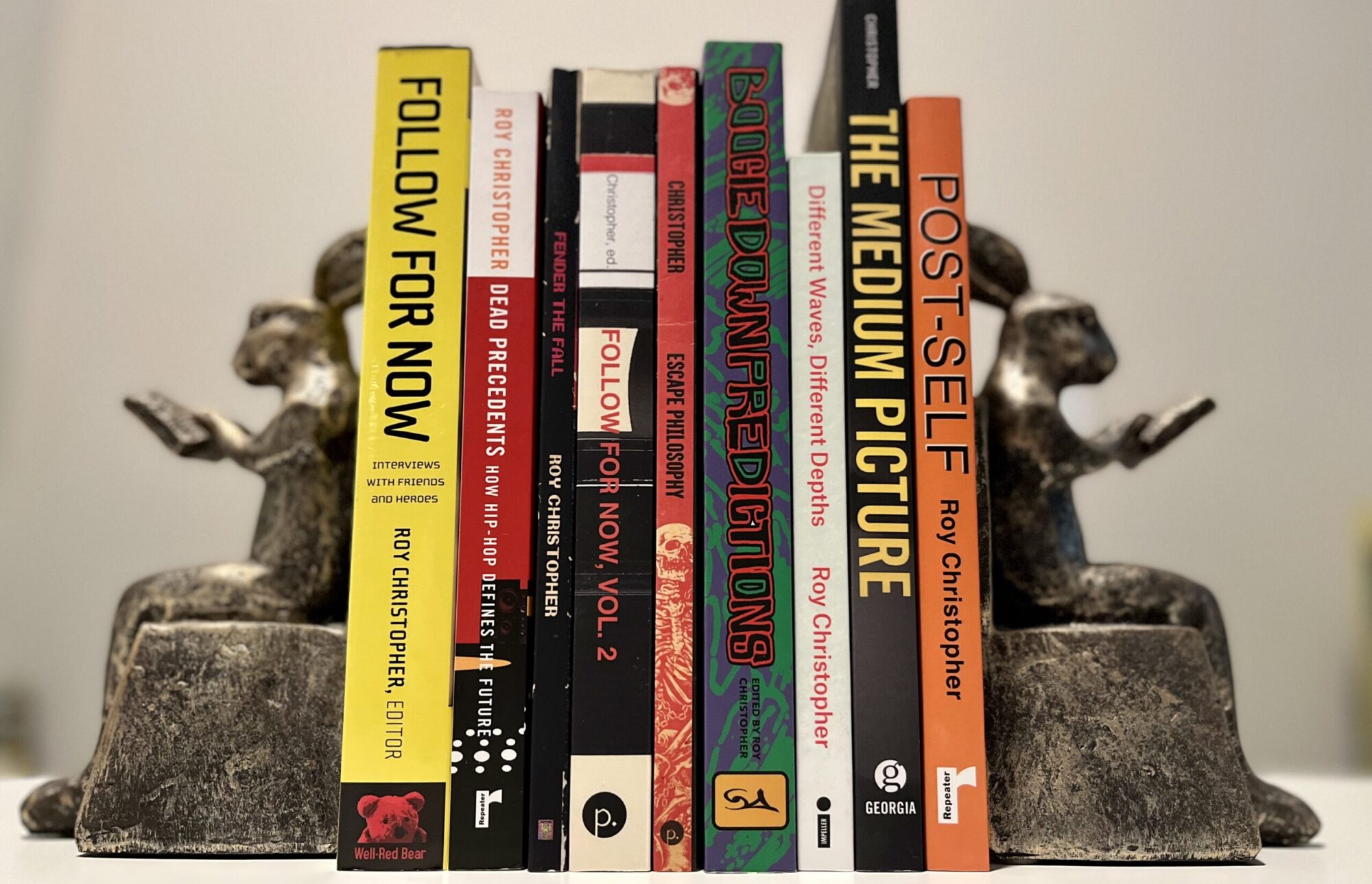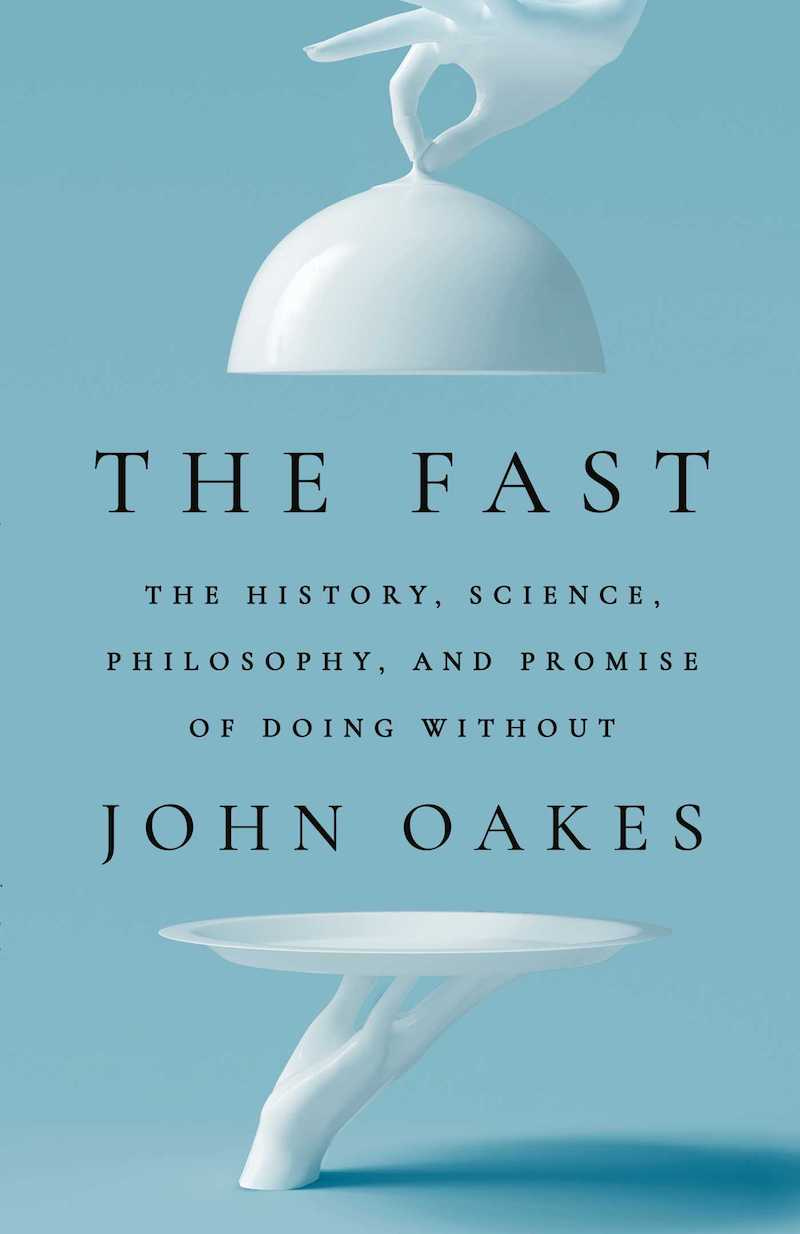Constraints—self-imposed or otherwise—can be a powerful tool. I have argued in the past the merits of pulling back, but John Oakes’ new book, The Fast: The History, Science, Philosophy, and Promise of Doing Without (Avid Reader Press, 2024), digs deeper into the history of abstinence of all kinds than I’ve ever dared. It’s erudite and well researched yet highly readable, historical and thorough without being unnecessarily verbose, and instructional and inspiring without the inherent condescension of a self-help manual.
John has been a friend and a supporter of my work for years now, so it’s an honor to turn it around and talk about his here.

Roy Christopher: You found an angle that cuts across so many other concerns. How did you arrive at fasting as the topic for this book?
John Oakes: It was something I fell into. Post-Trump—or what I thought was post-Trump—I decided to do an intense fast as a curative. A long shower wasn’t enough, celebrating wasn’t enough, meditation didn’t work… I needed to purge myself. A long fast seemed just the ticket, and it more or less was. And during a long fast (this was a week) you find you have a lot of free time, not buying/not preparing/not cooking food. I became curious about what was happening to my body—around Day Three or so you begin to feel a bit stoned, because of the various chemicals coursing through your body—and I searched for details. And then I started thinking about the role of fasting in religions, philosophy, and politics. The entire concept of pulling back appeals to me—and there wasn’t a book out there that combines these concepts. There are precisely a zillion how-to books on fasting that tell you it will cure everything from depression to old age, and a handful of academic books that look at aspects of the practice, but nothing that brought it all together. Plus, I like the idea of bringing a political perspective (the hunger strike and boycotts) to the discussion. Fasting has been integral to various political movements, from Russian civil rights activists in the 19th century, to suffragists and suffragettes, Irish and Indian patriots in the 20th century, to eco-activists in the 21st. Africans in the Middle Passage went on hunger strikes on such a regular basis that an instrument known as the speculum oris came into use by slavers to ensure force-feeding.
RC: Is there an underlying statement or message in The Fast that fasting is the path to?
JO: I would prefer to think I am simply reporting on the phenomenon and its spinoffs. BUT if pressed, I would say that fasting has so many applications beyond the religious or body-centric themes with which we are familiar. Judicious fasting can empower even those of us who are areligious and not body-obsessed. And it has been around a long, long time. It is for me a path to self-acceptance, to better understanding my place in the world, and it is a path that never ends. It is an important practice and it seems to me an effective one from a political standpoint. Even if hunger strikers don’t win their cause, they almost invariably force a dialogue—authorities may brutalize hunger strikers (thereby revealing their corruption), media may report on the situation, bringing outside attention to bear.
RC: I’ve found a lot of personal growth in going without things. I haven’t eaten meat since 1994, haven’t owned a car since 1998, haven’t had any alcohol since 2017, never owned a television… What is it about going without that is so powerful yet untapped by so many people?
JO: Good for you, Roy! That succession of “going withouts” is going against the grain for sure, and I find that admirable. I think we give ourselves a sub-conscious pat on the back when we refrain from doing certain somethings that we know we could do, that we know we have the right to do. (Of course, that doesn’t apply to all obligations; if, for example, we are supposed to pick up a child from school and decide not to do that, we are going to feel guilty.) Going without (to a limited degree) gives us strength because we suddenly realize we are stronger than we realize–whether it’s something as profound as resisting making a cutting remark or as trivial as eating an extra slice of pizza that we don’t really need. And yes, the nature of social media, with its lightning-quick responses, is anti-fasting. On social media, we’re swept along by our reactions (even if we don’t post) or our desire for reactions, and (with the help of corporations) we deceive ourselves into thinking we’re expressing individuality.
RC: Fasting in particular and doing without in general are not always seen as rebellious or revolutionary, yet they are the simplest means of undermining oppressors, manipulators, and the system at large.
JO: To me, abstention can indeed be revolutionary, but I am not sure how simple that act is. The act of withdrawal threatens the system—any system—which depends on participation. If, for example, you are a prisoner, you are expected to play the role of a prisoner; a businessperson or consumer, the role of a businessperson or consumer, etc. If you undertake a hunger strike (in the case of a prisoner) or a boycott (in the case of a businessperson or consumer) the act of withdrawal—fasting from food in one case and fasting from contact in another—becomes a powerful tool, even a weapon. The ancient Irish weren’t wrong to respect the power of fasting—“illegal fasting” even merited a fine in pre-Christian Ireland. Nothing terrifies Israel as much as BDS. But it is very hard to force people not to fast, or to boycott.
RC: You fasted yourself while writing this book. Have you done any form of fasting since finishing it?
JO: Indeed I have—in fact, at this moment I am on Day Five of a weeklong liquid-only fast. I fast for at least a week, twice a year, once in spring and once in the fall. It is my own personal ritual to assure the change of seasons!
—
The Fast is available wherever you buy books.


